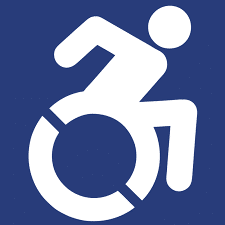Some advocates for the people with disabilities are voicing disfavor with the U.S. Census Bureau’s plan to change how it asks people about disabilities.
The advocates assert they were not consulted enough about overhauling how disabilities are defined, and that the planned changes to the census would artificially reduce their numbers by half.
Overall, there are currently about 42.5 million Americans with disabilities, making up 13% of the civilian noninstitutionalized population, according to U.S. Census Bureau.
Nearly 62% of people with disabilities voted in 2020, up from 56% in 2016.
Factors at stake in revising the census questioning include whether people with disabilities get vital resources for housing or schools or certain benefits. Further, some advocates are questioning the timing of the revision—coming on the heels of the Covid-19 pandemic as more people are living with new, long-term health conditions.
However, Census Bureau officials say the changes will align the U.S. with international standards, thus allowing statistical comparisons with other countries.
Currently, questions ask respondents to answer “yes” or “no” if they have difficulty or “serious difficulty” seeing, even with glasses, or are blind; hearing, or are deaf; concentrating, remembering or making decisions because of a physical, mental or emotional condition; walking or climbing stairs; dressing or bathing; or performing everyday tasks because of a physical, mental or emotional condition. If the answer is ”yes,” they are counted as having a disability.
Under the proposed changes, respondents could answer questions from four choices: “no difficulty,” “some difficulty,” “a lot of difficulty” and “cannot do at all.” There are also tweaks to the wording of the questions.
But the most significant proposed change would involve defining what constitutes a disability in the first place. In alignment with international standards, the Census Bureau would define a person as having a disability if they answer “cannot do at all” or “a lot of difficulty” for any task or function; currently the definition also includes those who answer “some difficulty.”
If the new questioning gets final approval, the changes to the American Community Survey—the most comprehensive survey of American life—could be implemented in 2025.
Read more exclusive news from Political IQ.


